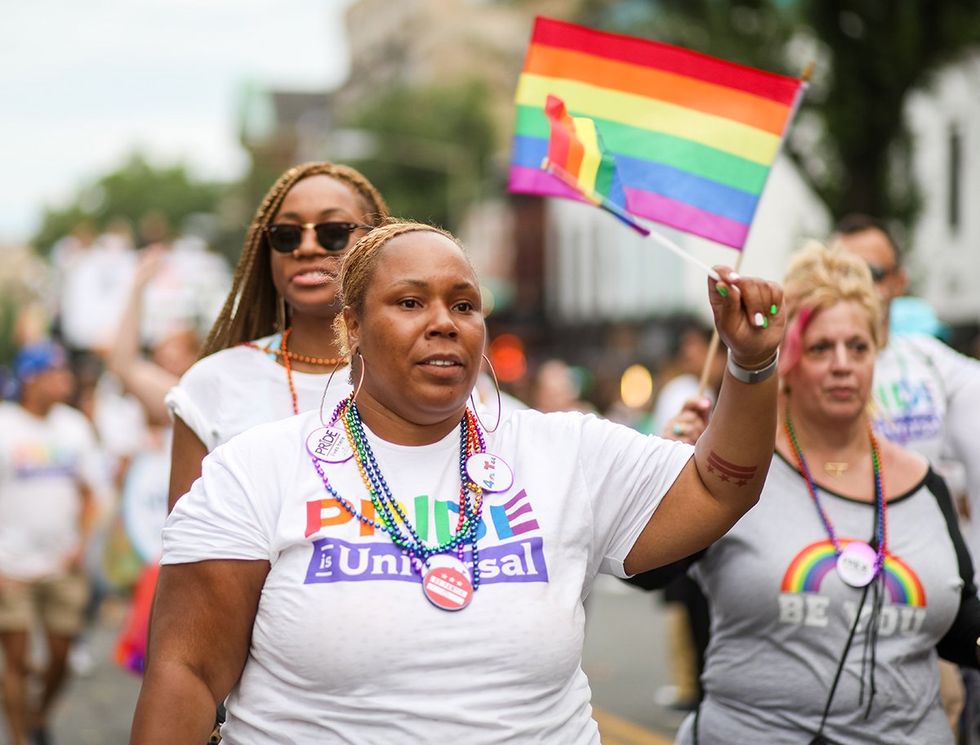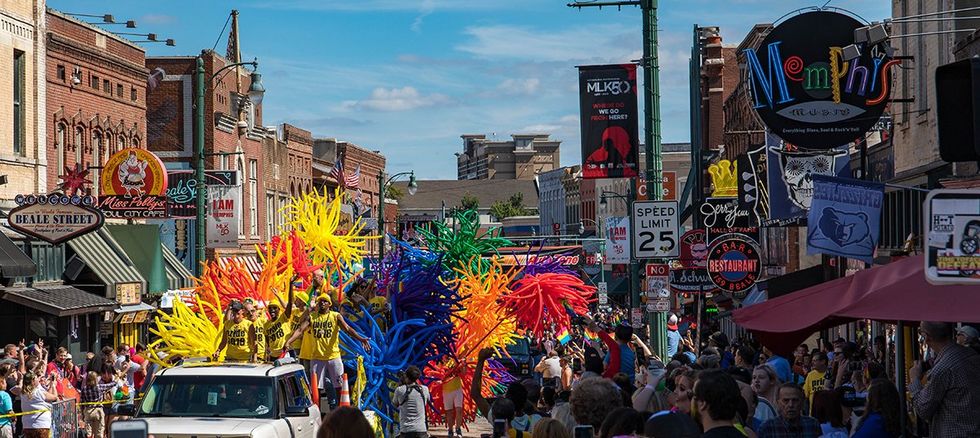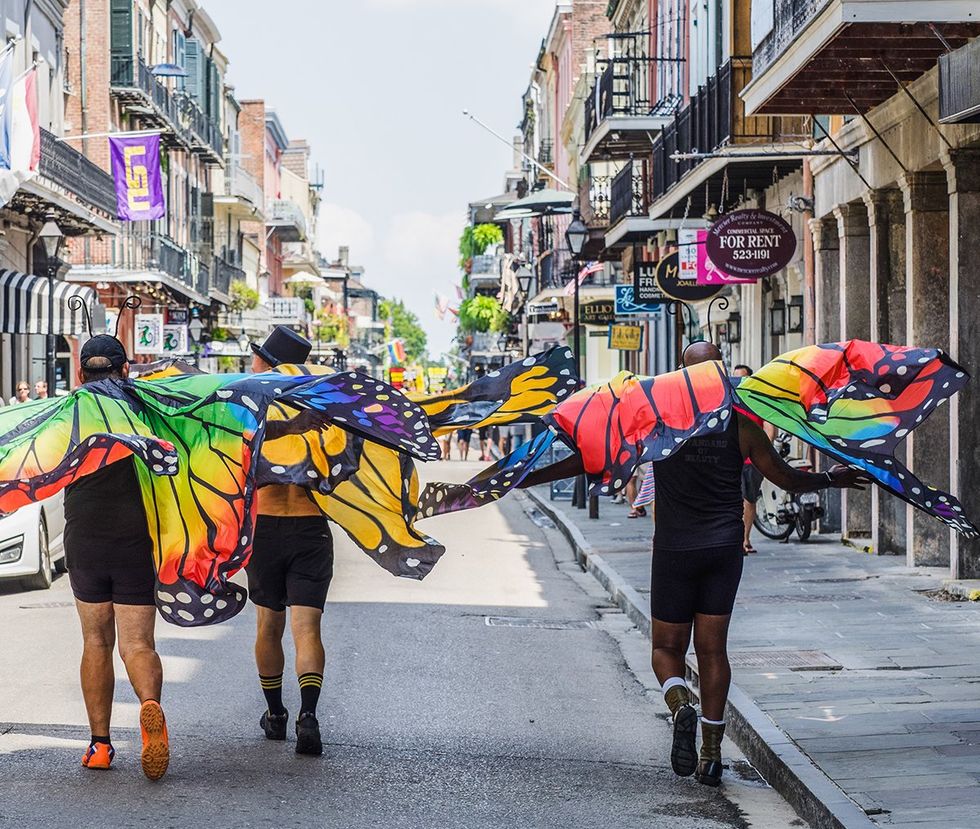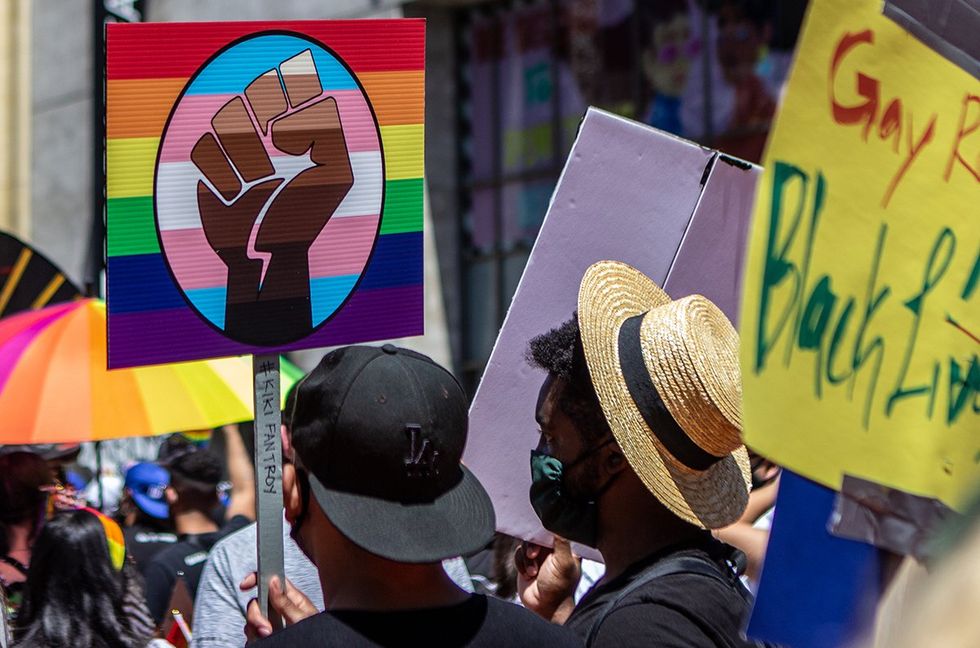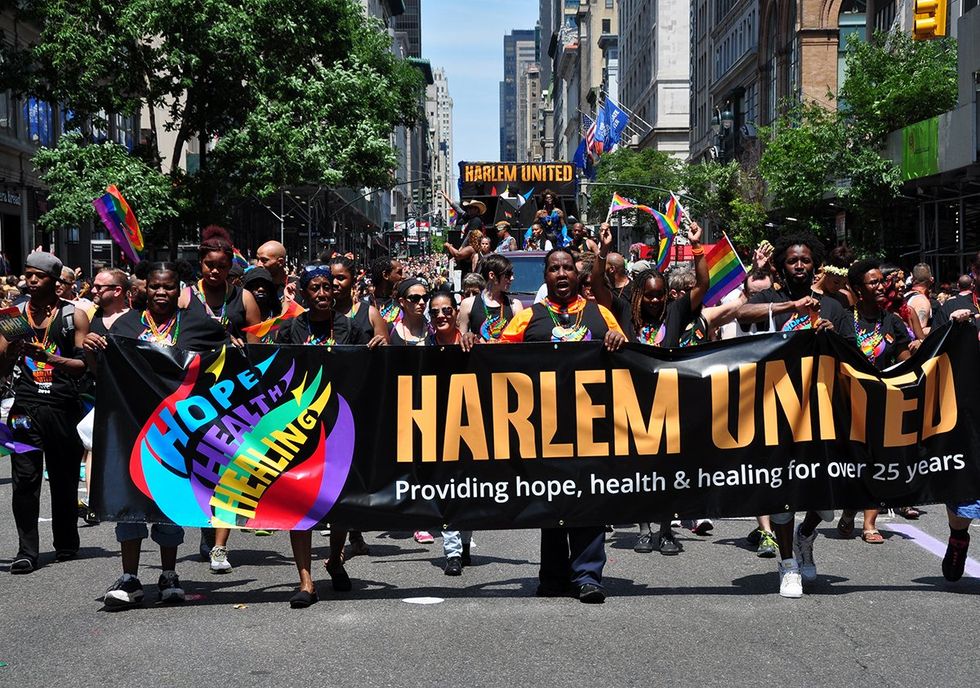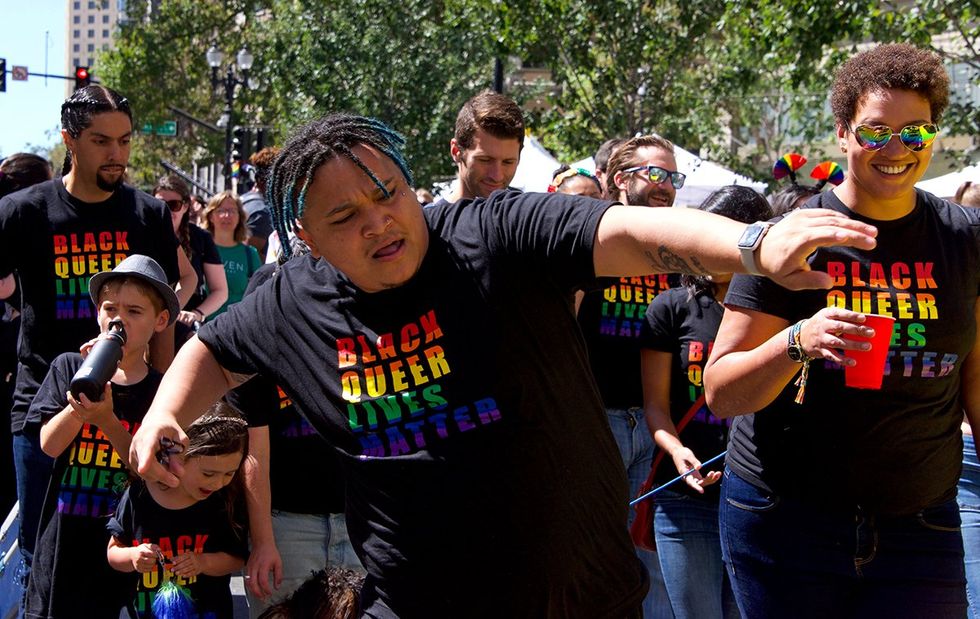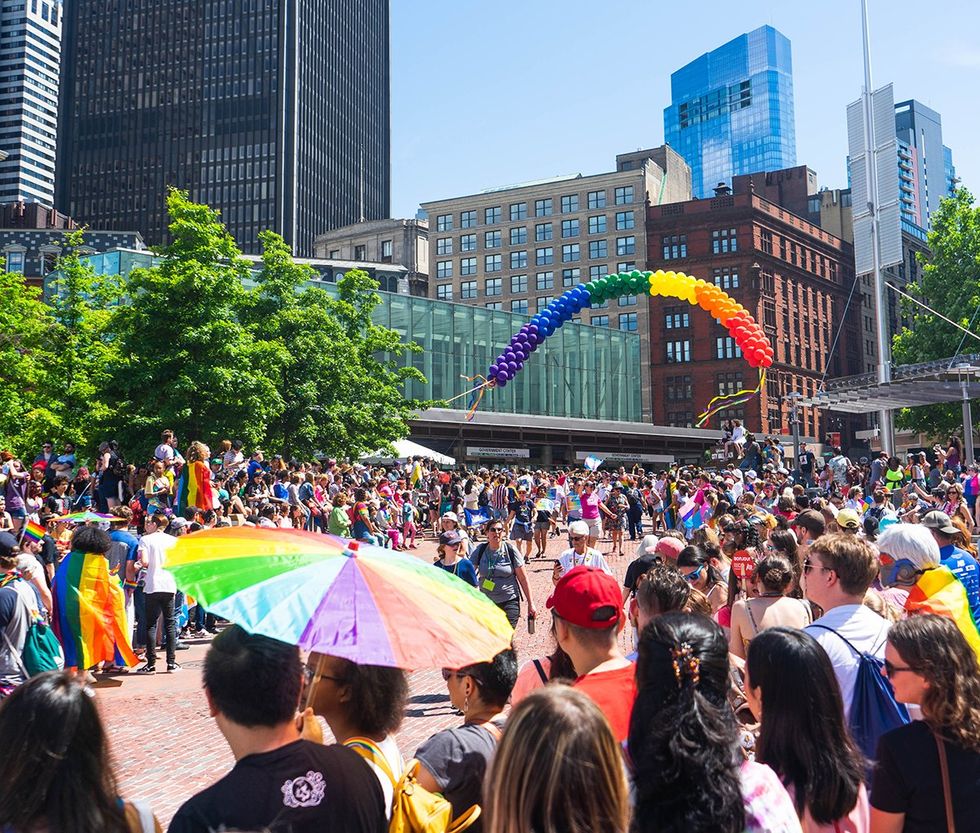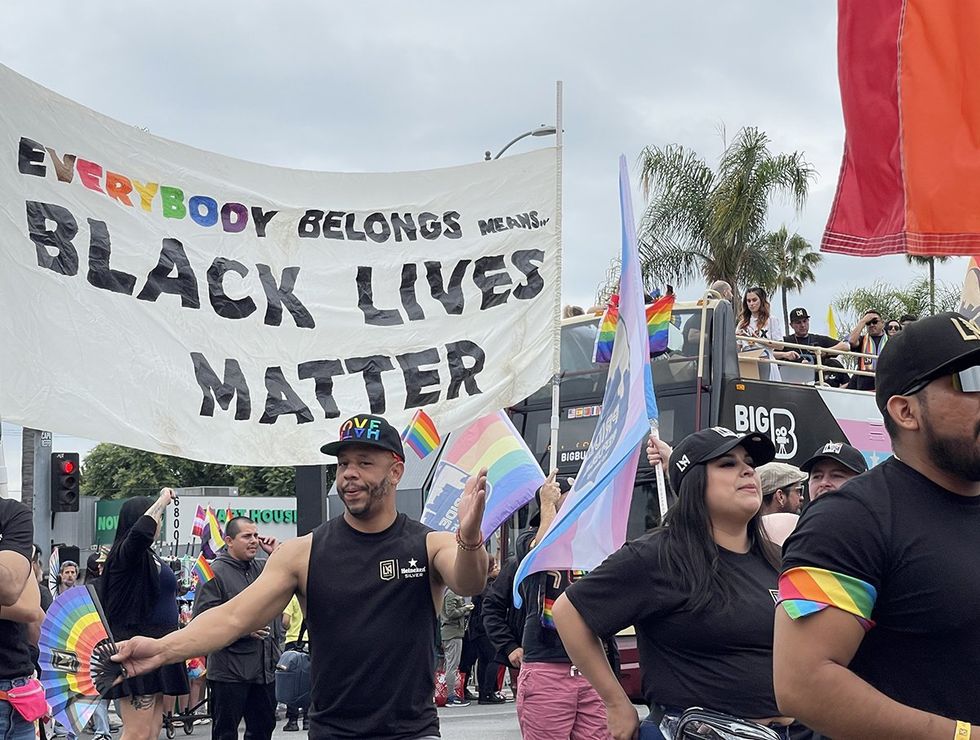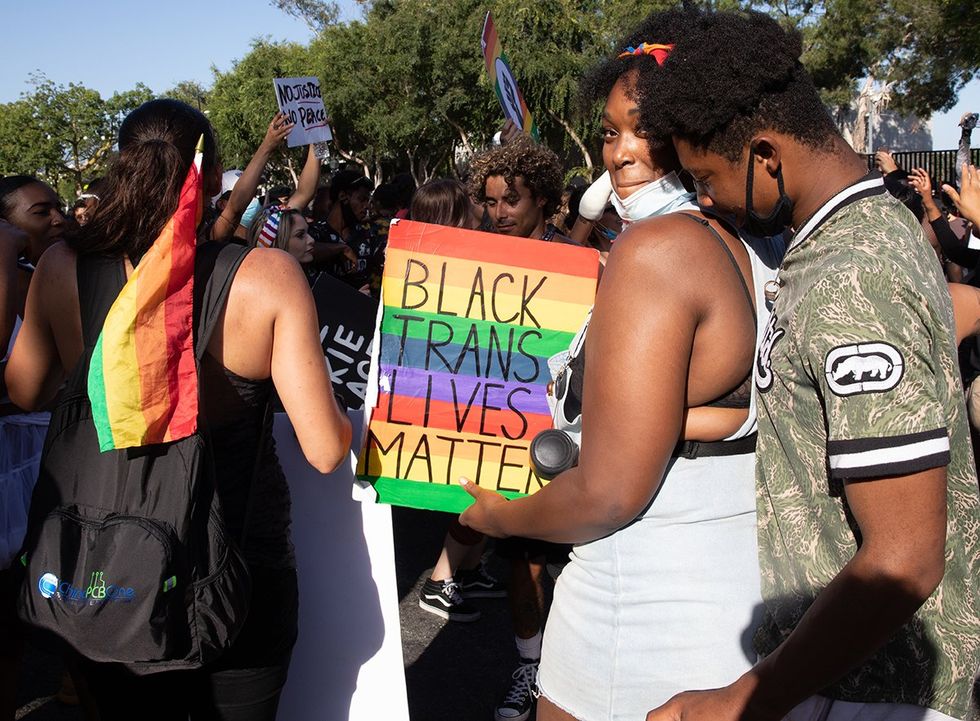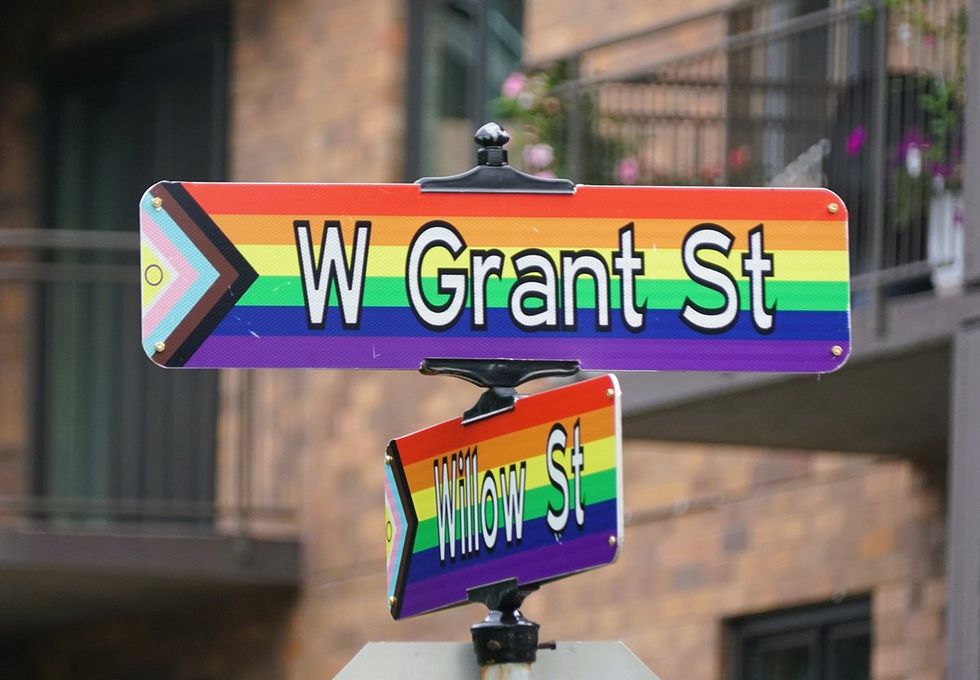Alana McLaughlin's journey wasn't easy. She's an artist, a survivor, a Cancer and a transgender veteran who suffers from posttraumatic stress disorder (PTSD). McLaughlin says, "PTSD has made me fearful of men, fearful of large groups, fearful of loud noises, fearful of potential ambush sites, fearful of wide open spaces with no cover or concealment. I size up every person I meet, always." As a trans veteran, McLaughlin is not alone.
UCLA assessed that nearly 150,000 transgender people have served in the military, which is about 21 percent of all transgender adults in the United States. Societal pressure, transphobia and isolation are often linked to social anxiety and PTSD. Combined, these factors make coming out as a trans veteran a rough road for many people.
Despite risking their lives to serve their countries, trans vets are often not awarded equality, protection or respect.
When I spoke with McLaughlin, I hoped she'd open up about transitioning in a hyper-masculine environment — and she did. Like many trans woman, one of McLaughlin's earliest memories was when she wore her mother’s shoes and sisters’ clothes. She says she knew she was trans at a young age, but couldn't come out. While trying to hide her identity, McLaughlin still preferred to play with girls. When she befriended boys, they played house and McLaughlin took on the traditionally feminine roles, which she eventually realized were socially taboo.
When I asked when she knew she was trans, McLaughlin said, “The first time I learned a word for people like me I was watching one of those problematic exposés on TV in the late 80s or early 90s. It was about Christine Jorgensen and they used the word 'transsexual.'" She added, "I remember an episode of Unsolved Mysteries about a trans woman by the name of Ms. Carmichael who was a con artist with a bogus three-wheeled car company. In middle school I found medical books talked about 'transsexualism' and its 'treatment'. That’s when it sank in that I knew who I was.”
McLaughlin repeatedly came out to her parents, but they told her she was not and would never be female. She spent most of her childhood coming out, and her parents were adamant her sexual abuse caused her feminine inclinations.
American society views military service, dominance, supremacy, violence, and the ‘soldier ritual’ as profoundly masculine. As a patriarchal society, we value masculinity over femininity, and ideal soldiers represent the image of a "real man".
The warrior ideology is in our folklore and literary customs throughout history. Currently, the concept is held to high esteem in books, media and video games. McLaughlin says, “From my perspective, it seems likely that trans women are drawn to military service for the same reasons I was: to force myself to be a ‘real man’ or, simply, to die. I imagine for trans men, they might find military service as a way to affirm their gender.”
McLaughlin elaborated on the complicated reasons she joined the military and how they conflicted with her inability to live freely and truly. After transferring colleges (due to transphobia and harassment), she was incredibly depressed and doing poorly in school. Her gender dysphoria and depression, took over her life. After McLaughlin's parents advised her to try conversion therapy, she joined the military.
“Being the savvy kid I was I knew that approach would fail, and I shot back with a snide comment about getting myself killed at war as a better alternative. And to my comment, my mother said, 'Maybe the army’s not a bad idea.'
After high school, McLaughlin nearly joined the marines and, at this point. She agreed with her mother. She constructed a plan to die in combat so her parents wouldn’t feel ashamed of her anymore. At the very least, maybe she could brainwash herself into identifying as male.
In the end, she was disappointed to survive the military. “For at time, I almost convinced myself I was fighting for the GI bill and to bring freedom to the people of Afghanistan. Almost.”
She exhausted her plans to force herself into living as a man. McLaughlin knew after her military service, she had to transition. After living her life as a hyper-masculine person, presenting as a straight man, McLaughlin started transition.
“People took my transition in pretty much every way imaginable. There were some who said they’d never have suspected anything. Others said everything made perfect sense now. My parents still don’t accept me because trans identities challenge their religious views, and family members who 'accept' me, don’t support me. They can’t be bothered to try to understand what it means to be trans or to learn terminology or to put any effort into making me feel loved. As for friends: they’ve been far better. I only lost a few to transition. I’ve probably lost more over my angry feminist rants.”
McLaughlin was employed as a blacksmith, but she lost her job after transition and continues to have trouble finding work. Despite the challenges, McLaughlin says she's happier today than ever.
"Now, despite the harsh realities I face, I feel like a real person and not some soulless automaton. I used to feel like an empty suit of armor or just an angry monster, and now I have access to emotions like love and sadness. Sometimes it’s overwhelming and joy is hard to come by, but at least it’s out there somewhere and I catch a glimpse of it every once in a while."













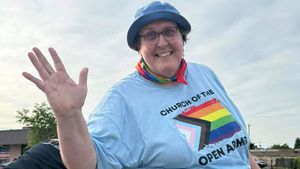










































 From left: Jena Malone, Jodie Foster, Jay-Z, and Kendall and Kylie Jenner.Featureflash photo Agency/Shutterstock; Tinseltown/Shutterstock; Tinseltown/Shutterstock; Taylor Hill/FilmMagic
From left: Jena Malone, Jodie Foster, Jay-Z, and Kendall and Kylie Jenner.Featureflash photo Agency/Shutterstock; Tinseltown/Shutterstock; Tinseltown/Shutterstock; Taylor Hill/FilmMagic


















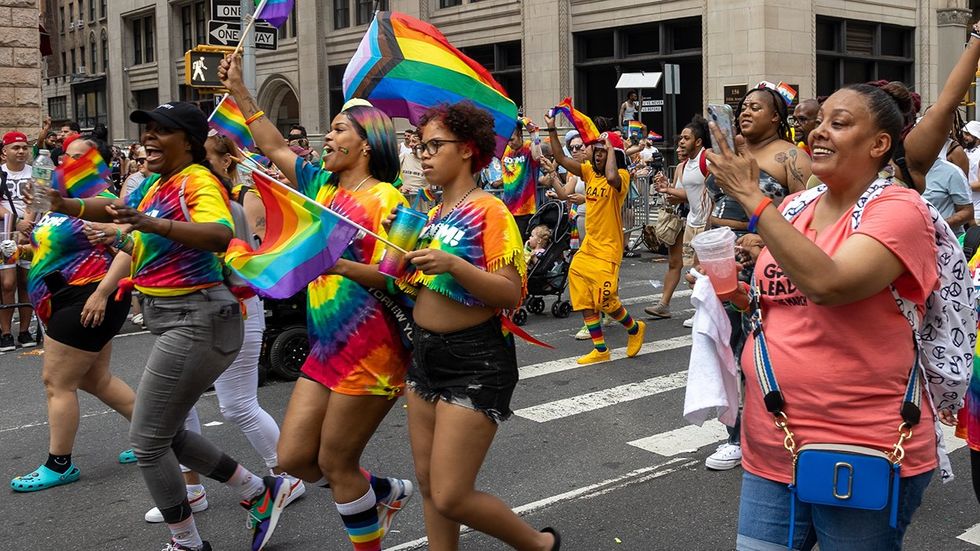 Kirkam/Shutterstock
Kirkam/Shutterstock